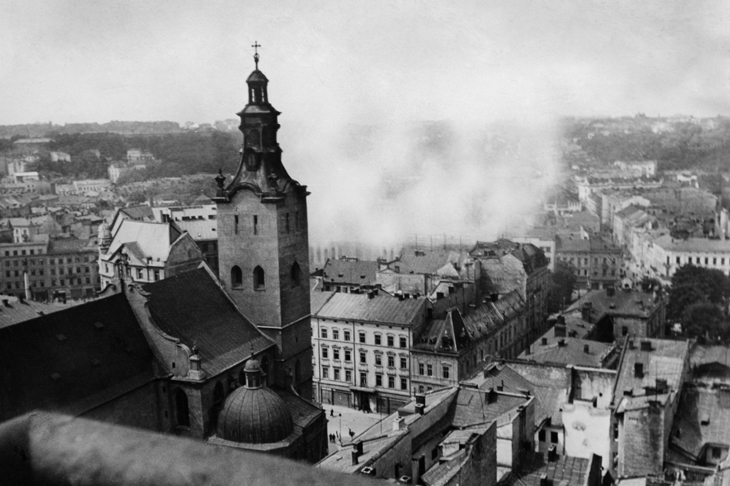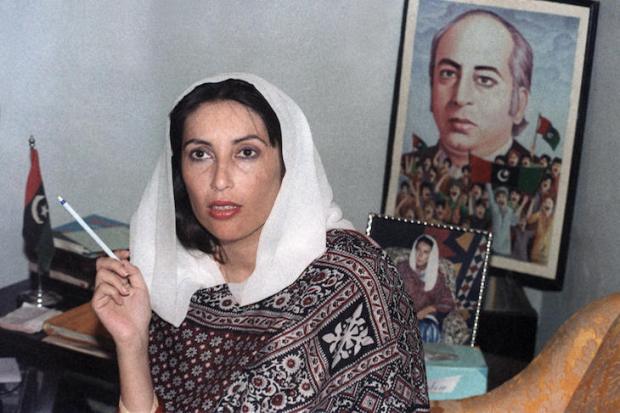How very odd of Radio 4 not only to release The Ratline as a podcast before broadcasting it on the schedule in the conventional manner, but also to give its network listeners an edited-down version. It’s as if the podcast of Philippe Sands’s programme, which investigates war crimes by the Nazis, fuelled by his own family history and what he discovered while writing his book East West Street, has been given priority, and anyone who listens in the old-fashioned, switch-of-a-button way is somehow second-best and doesn’t deserve the full monty. The first episode of the ten-part series was six minutes longer online than on-air. What’s in those missing minutes, I wondered?
Not much. A bit of filling. Some extraneous detail. The sound of someone typing on a typewriter, just to make sure we pick up on the fact that we’re talking history here. There’s a good deal of hyperbole, claims of ‘unique’ access, the insertion of an anachronistic reference to Donald Trump, some voice-to-mike stuff from Sands himself, emphasising the personal nature of his quest. None of which is necessary. Sands has the voice, the authority, the observational understanding of what makes a telling detail, and the raw passion of his mission to make great radio. Are two versions of the series really necessary? You can now listen to the first episodes on iPlayer but also to the longer podcasts (some of which run to 30 minutes). Is this cost-effective?
In The Ratline, Sands follows up on one of the stories he talked about in his book, as he discovered that 80 members of his extended family had died in just four months when the Nazis moved into the town of Lviv (which used to be called Lemberg). He was particularly intrigued by Otto von Wächter, a wealthy family man and lawyer who was also a high-ranking Nazi, and who was in Lemberg while those mass murders were taking place. Was he implicated in genocide? And what did he know about the Ratline, the escape route out of Europe used by the Nazis after 1945?
Otto’s son Horst now lives in an ancient schloss just outside Vienna and when Sands visits he takes him up into the padlocked attic where they find shelves full of Nazi literature and also a huge archive of letters written by Horst’s parents, some of which refer to that time in 1942 when Otto was in Lemberg and Sands’s family were being exterminated. Sands thinks of Horst as a friend but what will emerge from his researches? The series keeps us in suspense, drip-feeding us information in pure podcast style, with additional sound design (i.e. lots of intrusive music). None of which can detract from Sands’s clarity and his gift for telling a compelling story, at its best in the on-air version.
‘Spinach is not for me,’ says the actor, playwright, director and now artistic director of the Young Vic in London, Kwame Kwei-Armah in Wednesday’s edition of Behind the Scenes on Radio 4. He was talking to Peter Curran about his first production for the Young Vic, a musical version of Shakespeare’s Twelfth Night. He was most afraid, he says, of coming back to London (from Baltimore in the US, where he resurrected a decaying theatre and transformed it into a hugely successful community project), and of what people would expect of him: ‘black working-class plays all set in Hackney’, or what some have called, ‘spinach theatre’. Kwei-Armah decided instead to bring to London a new-minted production of his American adaptation of the Shakespeare comedy which he put on with a cast of 200 from the five boroughs of New York alongside a professional cast.
‘If you want to know what I learnt in America,’ he says, ‘it was community, art alongside it, and joy right in the middle of it… joy and politics are not separate for me.’ Then he added, in a programme full of surprising conjunctions, ‘Tony Benn always had a twinkle in his eye when he was challenging the status quo. It wasn’t this thing where it was deep-filled anger. There was this little thing that let you know he was having fun while challenging the world. And I like that for theatre.’
There’s no way that Empire-ical Evidence should have been a programme worth recommending. The cheesy punning of its title was not encouraging, and its attempt to be funny about the British empire was less than promising. But I was intrigued by Andy Zaltzman and Anuvab Pal’s ambition and then surprised to find myself chuckling at their chutzpah in taking on both the establishment and post-colonialism. They begin in the East India Dock, ‘the spiritual home of Britain’s rule of the world’, only to discover that it’s now a small wildlife reserve whose water is ‘in the advanced stages of stagnancy’. Later they find themselves in Trafalgar Square, with the statue of Henry Havelock (hero of Cawnpore but who’s heard of him now?), and Parliament Square where Gandhi now has a memorial. Pal reminds us that the Indian leader refused to talk to Churchill because ‘He’s a drunken, middle-aged, barbaric lout.’ His statue now stands behind Churchill’s, ‘with a slightly disgusted look in his eyes’.
Got something to add? Join the discussion and comment below.
Get 10 issues for just $10
Subscribe to The Spectator Australia today for the next 10 magazine issues, plus full online access, for just $10.
You might disagree with half of it, but you’ll enjoy reading all of it. Try your first month for free, then just $2 a week for the remainder of your first year.














Comments
Don't miss out
Join the conversation with other Spectator Australia readers. Subscribe to leave a comment.
SUBSCRIBEAlready a subscriber? Log in